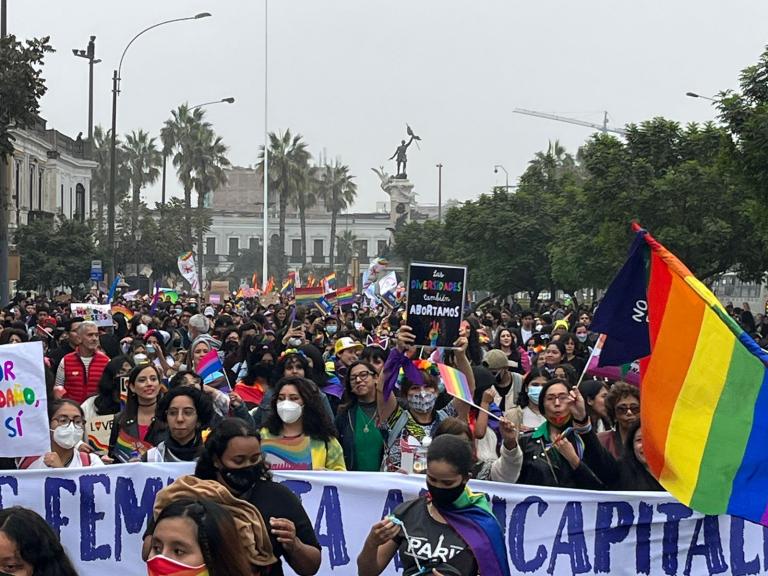
Insights
Peru's First Legal Case of Discrimination Based on Sexual Orientation Finds Justice 18 Years Later
Region(s)
TOPIC(s)
Type
Commentary
Author(s)
Publish Date
April 12, 2023
Share
This week, the Inter-American Court of Human Rights issued a ruling in the case of Olivera v Peru that has important implications for lesbian, gay, bisexual, transgender, intersex, and queer people's right to non-discriminatory treatment in public accommodations. The Court has established the responsibility of the Peruvian State for the violation of the right to liberty and public security, access to justice, privacy and equality before the law of the Peruvian LGBTIQ activist Crissthian Olivera on a case of discrimination based on sexual orientation. Among the remedial actions, the Peruvian State must design and implement an annual national media campaign aimed at sensitization and awareness-raising regarding the importance of promoting in society a culture of respect, non-discrimination and guarantee of the rights of LGBTIQ persons.
In 2004, Crissthian Olivera and his same-sex partner were in the cafeteria of a supermarket, reading poetry and showing affection for each other. Supermarket staff, accompanied by security, approached the couple to point out that a customer was "uncomfortable and annoyed" because he and his daughter were at an adjoining table. The staff asked Crissthian and his partner to stop any public display of affection out of respect for the customers and due to the presence of children. At one point during the altercation, a police officer was present and supported the company's position.
Olivera, with the assistance of the media, proved that this corporate policy only targeted same-sex couples since heterosexual couples displaying affection in the supermarket chain's cafeterias were not subjected to any warnings or reprimands. As a result, he decided to sue the supermarket before Indecopi, the public agency in charge of defending consumer rights. This was the first case of discrimination based on sexual orientation to be filed in Peruvian courts.
The process before Indecopi was unsatisfactory and revictimizing for Olivera, but this did not stop his quest for justice. After the Indecopi shelved the case, Olivera sued the supermarket in court. The court also rejected the case on the grounds that there was insufficient evidence of an act of discrimination, despite the fact that the supermarket itself, in mounting its defense, had acknowledged Olivera’s version of events.

Unable to obtain justice in the Peruvian courts, Olivera turned to the Inter-American Commission on Human Rights, which concluded that Olivera was subjected to interference in his private life and a distinction in treatment based on expression of his sexual orientation. The case thus reached the Inter-American Court of Human Rights.
Aware of the importance of this case, Outright International filed an amicus brief, with pro bono support from the law firm Dechert LLP. We requested the court to:
- Uphold that human right to non-discrimination applies equally to States and private actors.
- That States require private actors to comply with the international human rights standards established by the American Convention.
- That domestic courts shift the burden of proof in discrimination cases to the complainant to enforce the principles of equality and nondiscrimination.
In its ruling this week, the Inter-American Court noted that Olivera’s compelling case had been disregarded in the national courts because of his sexual orientation and pointed out that this compounded his initial experience of discrimination at the supermarket: “In a context where prejudice and historical and structural discrimination against LGBTIQ+ persons still prevails, administrative bodies and courts must be especially careful when dismissing or disregarding testimony, as this practice could be contrary to the American Convention. In no case may testimony be undervalued solely on the basis of a person’s sexual orientation, gender identity or gender expression.”
The Court's judgment is an important affirmation of the responsibility of States to ensure respect for the rights of LGBTIQ persons and a pertinent reminder of private companies’ human rights obligations. Peru, through complying with the ruling, now has the opportunity to amend its poor record in protecting the rights of LGBTIQ people in the country.
Almost twenty years after starting this battle, Crissthian Olivera finally gets justice. His example of perseverance and resilience is moving and inspiring in the ongoing fight to ensure respect for the rights of LGBTIQ people around the world.

Take Action
When you support our research, you support a growing global movement and celebrate LGBTIQ lives everywhere.
Donate Now